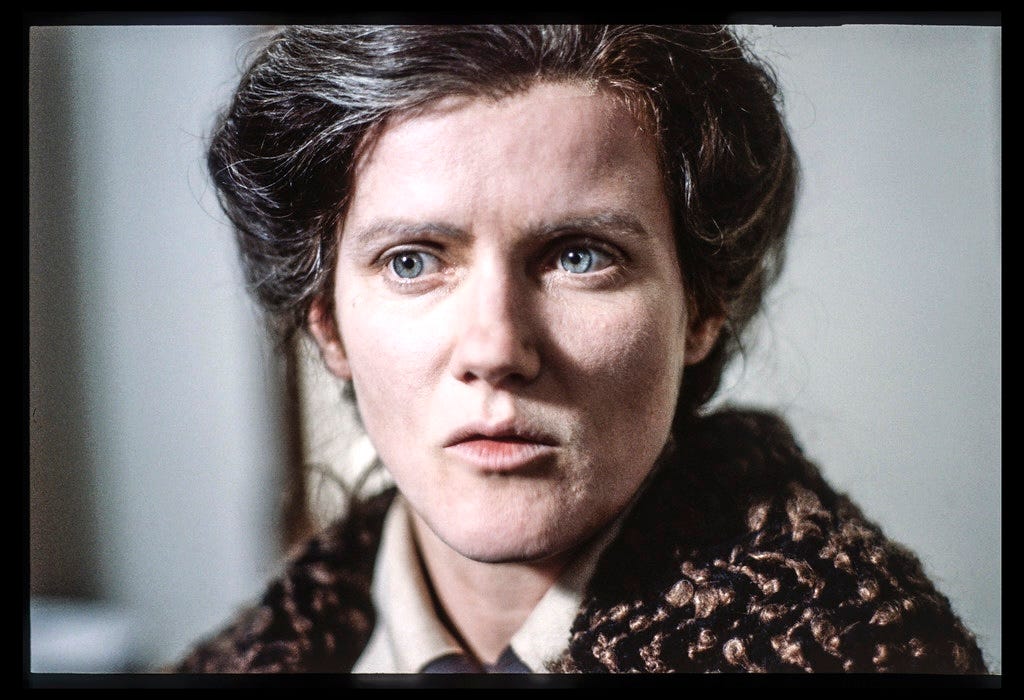‘Liebknecht’: A Tragedy
A jailed Berlin lawyer / legislator excites German crowds with his cries for anti-war activism and a genuine government of the People. Then he falls, a political martyr.
BERLIN (12. May, 2025) — My reading of the brief, aborted German Revolution of 1918-19 makes me think of a character-driven drama for stage or screen.

Beginning on November 3, 1918, the German Revolution — like so many left-wing uprisings — lasted only a few weeks. (Its brevity has made it all-but-invisible since then.) That day saw a miraculously peaceful — and spontaneous — labor walk-out by a single slice of the German military; sailors and dock-workers at the port of Kiel, on the Baltic Sea. It spread to other towns and other military bases, across Germany. By the thousands, men were simply putting down their guns and going home.
The revolution ended just a few weeks later, with the brutal assassinations — here in Berlin — of two anti-war activists, Karl Liebknecht and Rosa Luxemburg. The revolution forced their release from almost two years prison — sentenced there for voicing opposition to the war.
As a contemporary film treatment, this German historical drama is a tough one to work out. (Lots of moving parts, if you’ll forgive the pun.) In 1986, German filmmaker Margarethe von Trotta released a very good feature film about the revolution, “Rosa Luxemburg,” which casts Liebknecht’s famous (and arguably more popular) “partner in crime” at the center of the action. [Playing the title role, Barbara Sukowa (b. 1950) won a Best Actress award at Cannes that year.]

An alternative story, however, might focus on Liebknecht. It would begin in late November 1918, just as Liebknecht and Luxemburg are released from prison. A lawyer and parliamentarian, Liebknecht is gifted with something of a “silver tongue.” It landed him in jail, back in 1916, as he whipped-up passionate crowds against the war and the kaiser’s regime — and in favor of a stronger socialist republic.
Through December, Liebknecht speaks out as an Independent Socialist, favoring a new People’s government — as opposed to one mirroring the old oligarchy, catering largely to the rich and powerful. Liebknecht and his allies are, by and large, kept outside of the negotiations for the make-shift “revolutionary government.” They are slowly losing the battle to keep political power in the hands of the German Soldiers’ and Laborers’ councils, which had just sent Kaiser Wilhelm II packing-off to his forever-exile in the Netherlands.
Working against Liebknecht are the more mainstream social democrats, who quickly put together a weaker constitutional democracy, keeping many leaders of their own party in power — largely men who’d been loyal to the kaiser through the war.
Chief among Liebknecht’s antagonists is Friedrich Ebert (1871-1925). Ebert becomes the de facto German chancellor immediately after the kaiser’s retreat. He will be formally elected as leader of the new “Weimar” government in the spring. (The new federal delegates went to Weimar to hold their founding convention, as they didn’t feel safe in Berlin — surrounded, as they were, by leftist opposition.)
Liebknecht’s story ends in mid-January, when he and Luxemburg are brutally killed by two proto-Nazi military death squads, working separately. Their military persecutors are led by the crafty and toxic Gustav Noske (1868-1946), “known for using army and para-military forces to suppress the socialist/communist uprisings of 1919.” (Wikipedia)
That’s the jist of the story, painted with a broad brush.




